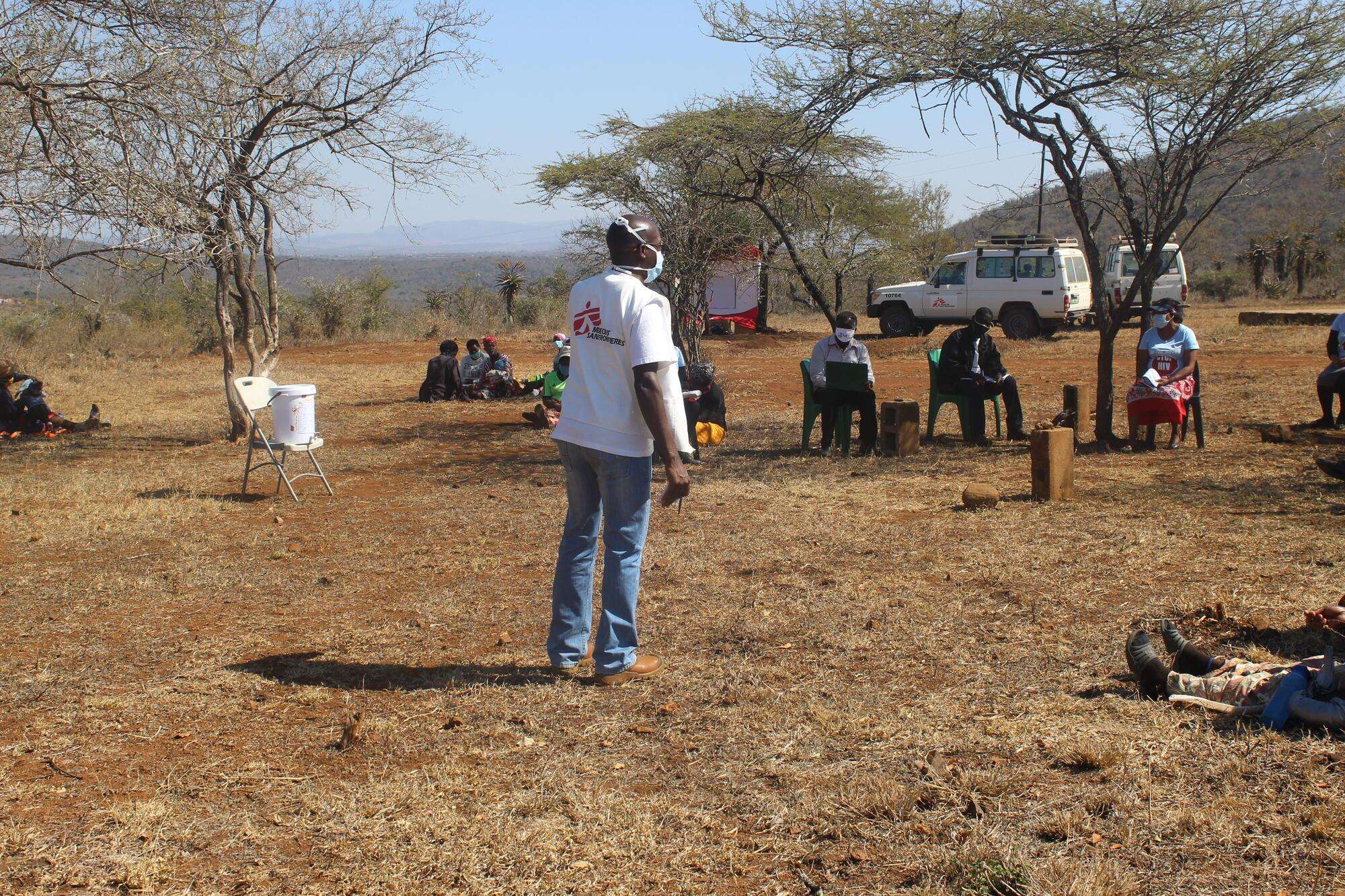As part of our patient-centered approach, we continued to run innovative, digitally-supported programs that guarantee quality of care, such as video-observed therapy for drug-resistant TB, whereby a health worker remotely watches a patient take their medication.
We also introduced ‘The Pocket Clinic’ project, which offers counseling sessions pre- and post-HIV testing through smart devices. These types of innovations strengthen adherence to treatment, making it easier and more affordable to seek care. To curb the spread of HIV in Eswatini, MSF offered health education and access to preventive measures, such as condoms and pre-exposure prophylaxis, to people who tested negative. We also initiated a study to examine the burden of sexually transmitted infections (STIs) and the feasibility of providing STI care in the community in Eswatini. The study assessed the prevalence of asymptomatic and symptomatic STIs and involved continuous engagement with participants through interviews. The results will be disseminated at the end of 2023.
To address the rise in non-communicable diseases, a pilot program was implemented for fixed-dose combinations of two drugs in a single pill for hypertension treatment.
We have also been implementing environmentally friendly measures to minimize MSF’s carbon footprint, using solar panels to generate electricity in a remote clinic in Gege, and hybrid energy vehicles for transport where possible.








